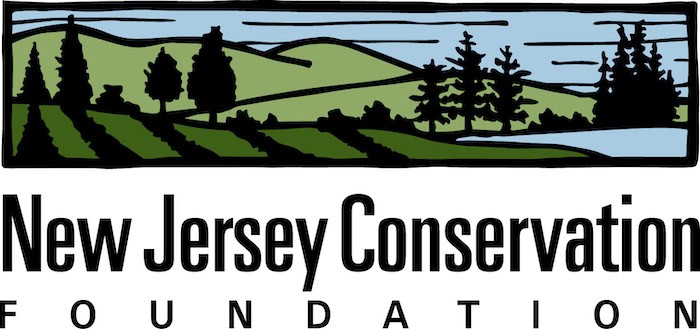By Alison Mitchell
Few things last forever, but one thing that must last forever is preserved land.
Here in New Jersey, when towns, counties and nonprofit organizations use state Green Acres funds to buy or improve land for public parks and open space, all of the parkland designated on their Recreation and Open Space Inventory is meant for permanent preservation.
Managers of publicly owned parks and natural lands must not be able to easily “divert” the lands for other purposes, but unfortunately, sometimes government agencies try to do just that.
The vast majority of land preserved over the 60 years of the Green Acres program in this state we’re in remains preserved, with enormous benefits for the public and native plants and animals. Yet today, “diversions” of preserved land for non-recreational uses are continuing.
When diversions of preserved land are clearly warranted because of compelling public purposes, they can be allowed by the New Jersey Department of Environmental Protection (DEP) Commissioner and the State House Commission.
When that happens, the diverted land must be replaced with equivalent lands that are of at least equal or higher value both in dollars and conservation benefits.
But many diversion proposals are not clearly justified and pressure on the state to allow the diversions is constant.
One current example is the diversion of parkland in Hudson County. This illegal diversion has stood unresolved for more than 20 years and local officials are now attempting to make it legal.
In 2001, the town of North Bergen was looking for a site for its new preschool program. Its solution was to place classroom trailers on a softball field at the James J. Braddock County Park. North Bergen officials claimed it was a temporary situation that would last only one school year, 2001-02.
The illegal diversion went unnoticed for a decade. Even after Green Acres discovered that parkland had been taken without authorization and with no compensation, the trailers stayed.
For the last 10 years, despite multiple pledges to move the trailers and restore the parkland, deadlines have come and gone.
In 2018, taxpayers approved funding to move the pre-kindergarten school elsewhere, but promises to relocate the preschoolers to safer, more appropriate facilities were broken and the trailers remained.
Even as recently as early 2020, North Bergen officials said the trailers would be gone by September 2022, but shortly after that announcement the municipality switched course and Hudson County applied to Green Acres for a permanent diversion allowing the Braddock Park land to be permanently used for a pre-kindergarten school.
In December, New Jersey Conservation Foundation and the citizens group Save Braddock Park – Safe Schools filed a lawsuit against the DEP Green Acres program, Hudson County and the Township of North Bergen opposing the attempt to permanently divert the parkland at Braddock Park.
The lawsuit claims Green Acres and the DEP violated their statutory duty to ensure that dedicated parkland is used only for open space or recreation purposes. It seeks an order directing the DEP to force North Bergen to complete its diversion application and to reject North Bergen’s application for a permanent after-the-fact diversion.
The suit notes that DEP staff had already determined a permanent diversion is not appropriate because several reasonable alternative locations for the preschool program exist.
Braddock Park is only the latest in a series of battles over diversions of important park and recreational land. Some earlier examples include:
Menantico Ponds Wildlife Management Area – At the request of Millville officials, an effort was made to remove 80 acres from the wildlife management area in Cumberland County for development as an industrial area. That attempt ultimately failed;
Seaside Heights beachfront – A diversion was sought, and gained, to swap 1.37 acres of prime public beachfront along the Atlantic Ocean for an antique carousel, a parking lot and 67 acres of inaccessible wetlands elsewhere. The beachfront land became an amusement pier;
Monroe Township – A large area of Thompson Park, owned by Middlesex County, was diverted to allow for the construction of a new high school. The replacement land consisted of scattered pieces of inaccessible open space that were already ostensibly preserved as part of a cluster housing development;
Plainfield parkland – Officials in Plainfield proposed to convert a city park into office buildings and a parking deck. The diversion was overturned by the state Supreme Court, but the park was ultimately lost due a new law allowing the change.
Efforts to divert protected parkland usually happen because undeveloped land is becoming increasingly rare and expensive, especially in densely populated areas, but parks and natural lands are preserved for the people, and for wildlife and natural resource protection. Once gone, they can rarely be replaced with truly equivalent land.
Braddock Park in North Bergen should not be diverted for a preschool that can be located elsewhere and with much better facilities for the children.
The Braddock Park case serves as a reminder that citizen vigilance in defending our state’s preserved parklands is critical. If it weren’t for local groups like Save Braddock Park, these proposals could easily pass quietly behind the scenes.
In addition, it would help to further strengthen Green Acres rules to make diversions more difficult, and boost enforcement. These actions would help maintain public confidence and trust in the excellence and permanence of New Jersey’s land preservation program.
You can help protect parks in your community by remaining vigilant to diversion proposals.
Get out and enjoy your town’s parks and preserves, keep an eye on development proposals, get involved with your local environmental commission, and ask questions if it seems parks are being eyed for uses other than recreation or conservation.
Alison Mitchell is a co-executive director of New Jersey Conservation Foundation. She may be reached at [email protected]

